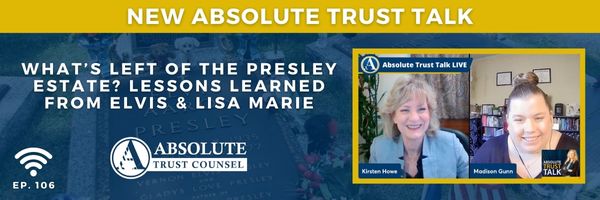


For parents of special needs children, the estate plan is much more than a vehicle for the transfer of wealth to the next generation. The plan must take the parents’ place in their child’s life. For parents whose child will always require the care of someone else, just the thought of what the child’s life will be like after their…


Imagine this scenario: your cousin, David, dies without an estate plan here in California. He had no children or further descendants. He has no living siblings, parents, grandparents, or aunts or uncles, but he does have you, his first cousin on his dad’s side. His only first cousin that you are aware of. You petition the court to open a…


Assembly Bill 1663 went into effect on January 1, 2023 amending the California Welfare and Institution Code to add new sections enacting the Supported Decision-making law. The law formalizes supported decision-making in order to reduce the number of people who might otherwise have their rights removed by a conservatorship. What is supported decision-making and how does it work? Supported decision-making…


History Heggstad petitions are named after the California court case, Estate of Heggstad. Mr. Heggstad created a living trust and identified the assets he wanted in the trust by filling out a schedule of assets attached to his trust. Unfortunately, Mr. Heggstad died before he could retitle those assets into the name of his trust. Wanting to avoid a full probate…

Welcome to 2023! It’s the start of a new year, a new month, and it’s time for new resolutions. Now, while anyone can set goals or make good old-fashioned New Year’s resolutions, seniors tend to struggle the most. Goal setting can seem irrelevant later in life, but research begs to differ. Instead, goal setting can be a factor in slowing…

